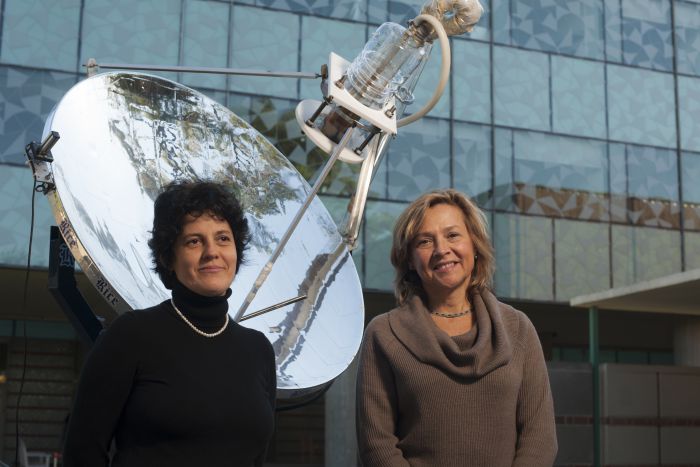Rice University creates solar steam with nanotechnology
 Over at Rice University scientists have developed a new method for converting solar and water into steam with little conventional heating using nanoparticles. The resulting concentrating solar power (CSP) devices could be used in developing countries and remote areas for life-saving things like clean drinking water and sterilization of medical instruments.
Over at Rice University scientists have developed a new method for converting solar and water into steam with little conventional heating using nanoparticles. The resulting concentrating solar power (CSP) devices could be used in developing countries and remote areas for life-saving things like clean drinking water and sterilization of medical instruments.
Already the technology is 24 percent efficient at converting water and even ice into steam. One of the interesting things about the technology is that the water or ice never has to boil, but is converted directly into steam as soon as the water-filled device comes into contact with sunlight. “This is a radical new way to harvest solar energy and to use it in a very, very general way,” said project leader Naomi Halas, the Laboratory for Nanophotonics director and Rice University Stanley C. Moore Professor in Electrical and Computer Engineering. The research was published in ACS Nano.
Halas pointed out the importance of steam to life since the industrial revolution began. “You can use steam to make electrical power but you can also use it for other applications like sanitation, or desalinization. So there’s a lot of interesting applications that might have a tremendous benefit in the developing world as well applications here at home,” she said in a video explaining the new technology.
“We’re taking sunlight and nano particles that absorb the solar spectrum and we shine light on the nano particles immersed in water. They will absorb the light and convert the light into heat,” Halas said. The team has used multiple types of nano particles, “We’ve used metallic particles and we’ve also used conductive carbon particles. What’s important is that the particles absorb light over the whole spectrum. the steam production works very well for all of those types of nanoparticles.”
While the overall device efficiency is at 24 percent, the nanoparticles are converting about 80 percent to 90 percent of the sunlight they are able to absorb. As such they vaporize water when they come into contact with it.
A team of Rice engineering undergraduates have used the technology to create a solar steam-powered autoclave, which can sterilize medical and dental instruments. Ideal for clinics in developing nations without electricity. Halas also is working on a Grand Challenges grant from the Bill and Melinda Gates Foundation. Under that award, Rice is developing a ultra-small-scale human waste treatment system. The group could also see using the device in other applications in the future, like powering hybrid air-conditioning and heating systems during daylight.



